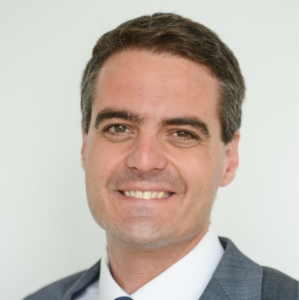
“The purpose of studying (African) economics is not to acquire a set of ready-made answers to economic questions, but to learn how to avoid being deceived by economists.”
(Based on the original quote from Joan Robinson)
Szabolcs Pásztor was born in Sátoraljaújhely in 1983. After finishing the local technical school specialised in economics, he graduated from the University of Debrecen in 2008. He got acquainted with the issues of growth and development of the developing countries during the university semesters and his thesis was clustered around the trade partnership of the EU and ACP countries.
He has been teaching at Hungarian universities since 2005. His career began at the College of Nyíregyháza, later he became an assistant lecturer at the University of Debrecen where he was awarded the prize of distinguished lecturer in 2012. His PhD thesis in which the economic role of disappearing borders was studied was defended in 2014.
Between 2014 and 2019 he worked at the Central Bank of Hungary and was a visiting lecturer at the Corvinus University of Budapest. From 2015 to 2019 he was an assistant professor at the National University of Public Service. They appointed him as an associate professor in 2019. His habilitation thesis which was on growth and development possibilities of the Sub-Saharan countries was defended in 2020.
He has been teaching at various universities of African countries since 2017 and has been on a number of field visits in the South and East African regions. Apart from the Sub-Saharan countries, he has taught in many universities across the world and he has been a visiting professor at Russian universities.
With his publications and presentations he strives to direct the attention to the fact that our strongly Eurocentric narrative of gives us little understanding of the business opportunities, the context of development and growth.
As the vice president for the Central European Knowledge Centre for Africa Business Studies, he strives for managing successful professional coordination. In addition, he is responsible for building international relations and setting the scientific standards of the organisation.